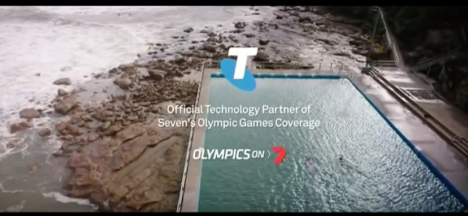Telstra’s ‘ambush’ Olympics campaign a key part of brand relaunch, court hears
The Australian Olympic Committee has claimed Telstra’s campaign for its Channel Seven Rio Olympic Games app was aimed at convincing consumers its 22 years of support for the Australian Olympic Team continued, despite it ending last year.
At the same time the AOC told the Federal Court today that Telstra was using its Games advertising as an important pillar of the brand relaunch which kicked off this week, a project the court was told had been dubbed “Brand 3”.


